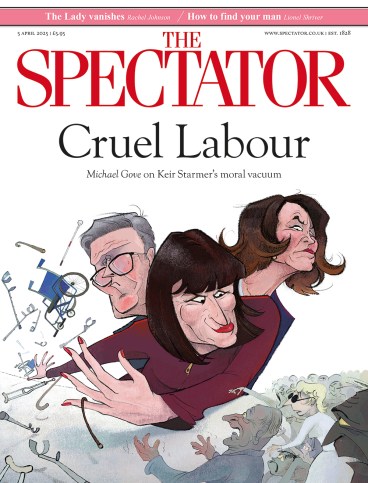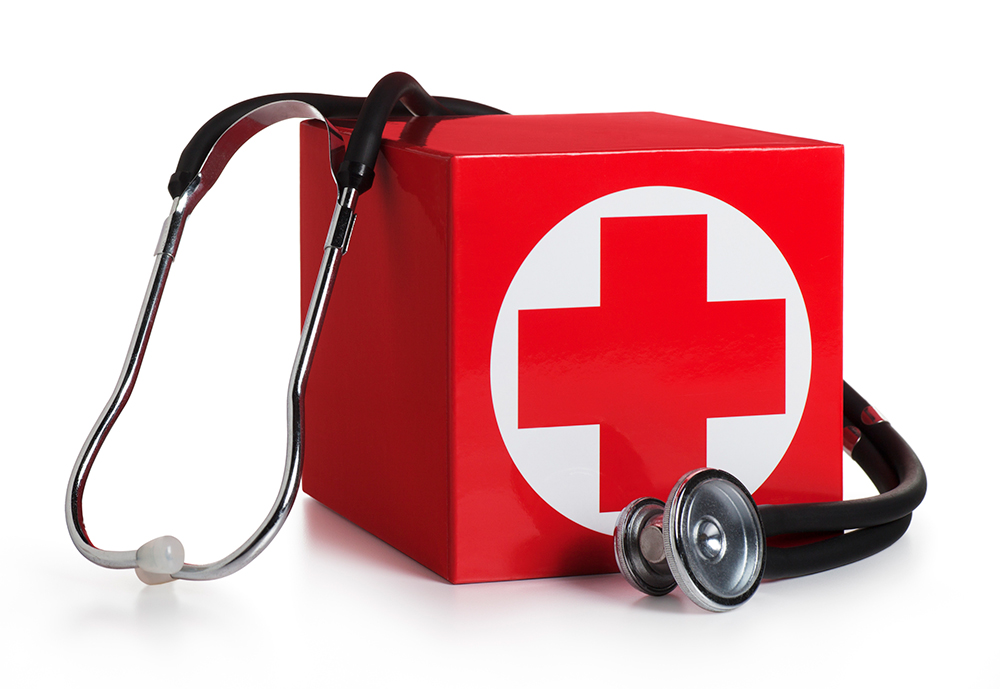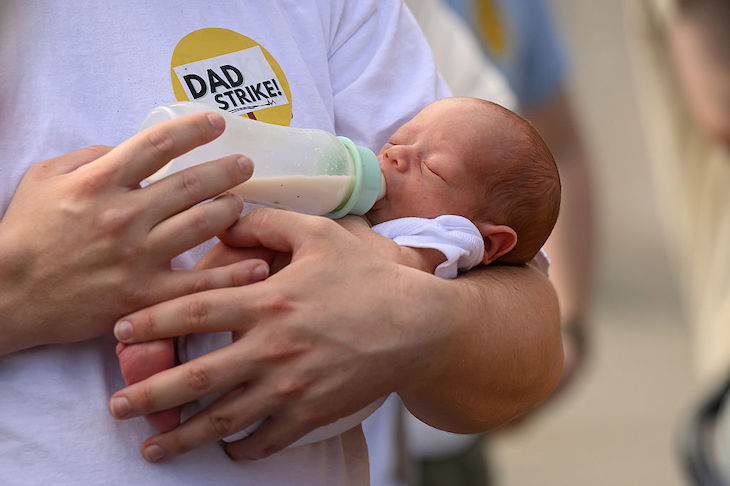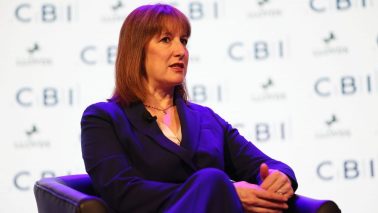
I was having a drink in the Bishops’ Bar in the House of Lords last month when I was introduced to a 92-year-old peer called Lord McColl of Dulwich. I asked him if he’d known my father, Michael, who was made a life peer in 1978. Had they overlapped? He told me he hadn’t merely known him; he’d operated on him.
If I have mild indigestion I think I’ve got stomach cancer; if I get a headache I decide it’s a brain tumour
I realised with a start that the man I was talking to was the famous surgeon Ian McColl, who was made a life peer in the Queen’s birthday honours list in 1989. As professor of surgery at Guy’s Hospital, he treated my father for bowel cancer in 1983, an operation so successful that Michael had gone on to live for another 19 years. He always attributed this to the skill of Lord McColl.
Meeting him was a poignant experience, and not just because he may have saved my father’s life. It was also a reminder that Michael got cancer at the age of 66, when he was just five years older than I am. My mother wasn’t so lucky. She died of ovarian cancer when she was just 63. I’ve never done 23andMe, but I would imagine my polygenic risk score for contracting cancer in the next few years is above average. My father went on to develop liver cancer, prostate cancer and bone cancer – and the latter was probably what killed him at the age of 86.
To compound my risk, my father and mother lived far healthier lives than I do. True, my father was an occasional smoker and partial to chablis. But his weekly alcohol intake cannot have been more than 10 per cent of mine. He had tomato soup for lunch every day for at least 60 years, and for supper rarely ate anything more extravagant than sardines on toast. He was 5ft 11in, three inches taller than me, but weighed less, being rail thin. He didn’t do much exercise, but walked quickly and ran up and down stairs.
My mother was even more clean-living. She didn’t smoke, almost never drank and avoided red meat. She enjoyed going for walks, sprinkled bran on her yoghurt – ‘for the roughage’ – and was in bed by 10 p.m. most nights. Indeed, the injustice of her premature death, given that she’d done so little to deserve it, convinced me at an early age – I was 29 when she died – that I might as well live high on the hog since the big C could come for me at any moment.
Now, of course, I’m not so blasé. On the contrary, I’m beginning to think I ought to take whatever steps I can to reduce the risk of getting cancer, even though I’ve left it to the 11th hour. Earlier this year, I came across an article warning that black plastic can cause cancer and ever since I’ve refused to eat anything Caroline has cooked involving the use of our spatula. The last time I made a fuss, she gently pointed out that I should be more worried about oesophageal cancer, given my wine consumption, and volunteered Christopher Hitchens and Martin Amis as Exhibits A and B.
I reassured her that I do worry about that. Indeed, I’m convinced I actually have cancer most of the time. Ever since I learned that men can get breast cancer, I’m constantly finding lumps in my moobs, and I’ve spent a small fortune getting moles and skin tags removed. I only have to suffer a bout of mild indigestion to think I’ve got stomach cancer, and if I get a headache or feel dizzy I immediately put it down to a brain tumour. I’ve even fantasised about taking Lord McColl to one side when the time comes and asking him if he could pick up the scalpel one last time.
In my more rational moments, I tell myself cancer is more survivable now than it ever has been before. The number of cancer diagnoses per capita in the UK is increasing because people are living longer, but cancer deaths among people aged 35 to 69 have fallen by a third since the 1990s, thanks to a combination of better screening programmes and medical breakthroughs. Looking ahead, it won’t be long before cancer vaccines are available, utilising the same technology that was responsible for the Covid vaccines. Admittedly, I’ve avoided those vaccines to date, but when it comes to, say, liver cancer, the risk-benefit calculation changes. For Covid, the infection fatality rate is about 0.4 per cent. For stage one liver cancer, your chances of dying in the next four years are about 50 per cent.
The sensible thing for me to do is to get thoroughly screened every 12 months, including an endoscopy. The last time I had one of those, I decided to forego the sedation and just have a local anaesthetic – not a mistake I intend to repeat. It’s a grim prospect, but not as grim as the reaper.









Comments